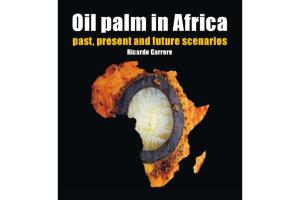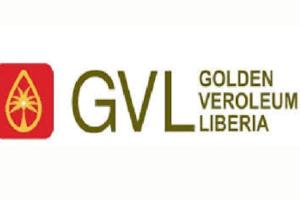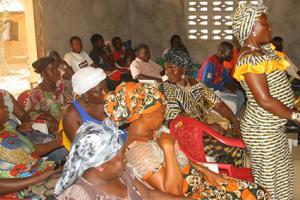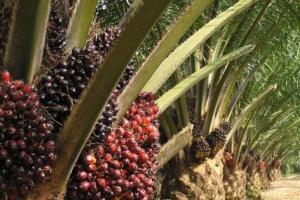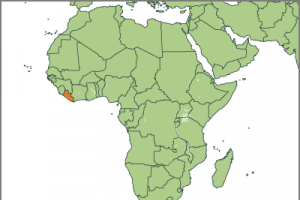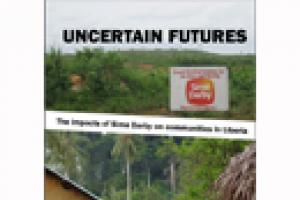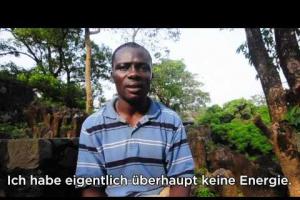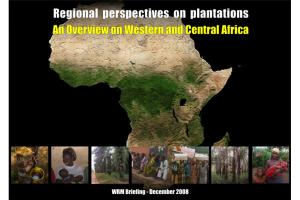Governments are opening the doors to corporations for planting vast areas of land with oil palm plantations. This trend is not only happening in West and Central African countries, but is even expanding to parts of Eastern Africa. Large scale oil palm plantations are already causing serious environmental and social impacts in some countries, resulting in loss of community rights over their territories.
Liberia
Publications
30 August 2013
Bulletin articles
27 February 2013
The three leading Liberian civil society organizations Sustainable Development Institute (SDI), Save My Future Foundation (SAMFU), and Social Entrepreneurs for Sustainable Development (SESDev) released a statement on January 31, 2013, calling for a review of Liberia’s agricultural policy. Since 2006, the Government of Liberia has entered into binding contracts – known as concession agreements – with three major oil palm producing foreign investors: Sime Darby (Malaysia), Golden Veroleum (Indonesia), and Equatorial Palm Oil (UK).
Bulletin articles
27 February 2013
The Garwula District, in Grand Cape Mount County, is one of the areas affected by the 63-year lease agreement signed by the Malaysian giant oil palm producer Sime Darby with the Government of Liberia in 2009. When the company established large scale export-oriented oil palm plantations the livelihoods of the local residents were disrupted, and women have had to cope with many difficulties.
Other information
27 February 2013
“Live or drive, a choice has to be made”, a case study of Sime Darby operations in Liberia, basta! and Friends of the Earth France, athttp://www.bastamag.net/IMG/pdf/Rap_LiberiaEN.pdf
Other information
30 December 2012
Under the slogan ´Our Future is Now´, more than 150 people – men, women, youth and elderly - from communities inside oil palm concession areas in Liberia gathered between 27 and 29 November in Bopolu City – Gbarpolu County - to discuss the expansion of export-oriented oil palm plantations in Liberia and the impacts of this expansion on their livelihoods. Two big oil palm companies are active in Liberia: the Malaysia-based company Sime Darby with a 311,187 ha concession area, conceded through a 63-years contract with the Liberian government, signed in 2009.
Bulletin articles
30 September 2012
Liberia, a small West African country with a population of approximately 3.5 million people, has a predominantly agrarian economy, with high dependency on land and land based resources. The majority of the population lives in rural areas and is engaged in subsistence agriculture and forest-based trade for income generation. Healthcare facilities are poor and in some places non-existent, and the majority of children lack access to safe drinking water. They also lack decent education. The country ranked 182 out of 187 countries on the UNDP Human Development Index in 2011.
Publications
20 August 2012
By Silas Kpanan’Ayoung Siakor
Media Brief
Large-scale land grant to Sime Darby to grow oil palm in Liberia threatens the rights of local communities, their food security, and puts their wellbeing at risk.
Bulletin articles
30 November 2011
The Swedish state-owned multinational Vattenfall is Europe's fifth largest energy producer. Its affiliate Vattenfall Europe, based in Berlin, is one of the four biggest companies in the German energy market. Vattenfall's energy production there is primarily fuelled by coal (65%) – it has its own lignite mines in east Germany – and uranium (26%). But the company has also branched out into the use of supposedly “clean” energy sources, like wood.
Bulletin articles
27 February 2009
Liberia’s forests hold great promise for its people, but that promise is quickly evaporating as the Liberian government mismanages this valuable resource. The government is awarding flawed logging contracts, community rights are being trampled underfoot, and civil society organizations are under threat of censorship (1) for speaking out.
Publications
15 December 2008
Oil palm and rubber plantations occupy extensive areas in many countries in tropical Africa. In spite of their social and environmental impacts, until now they have received scant attention both at the national and international level.
Bulletin articles
27 September 2008
In 1926, Firestone Tire & Rubber Company signed a 99-year contract with the government to lease one million acres [approximately 405,000 hecatares] of land for the establishment of a rubber plantation. The total concession area of Firestone represents 4% of Liberia’s territory and nearly 10% of its arable land.
